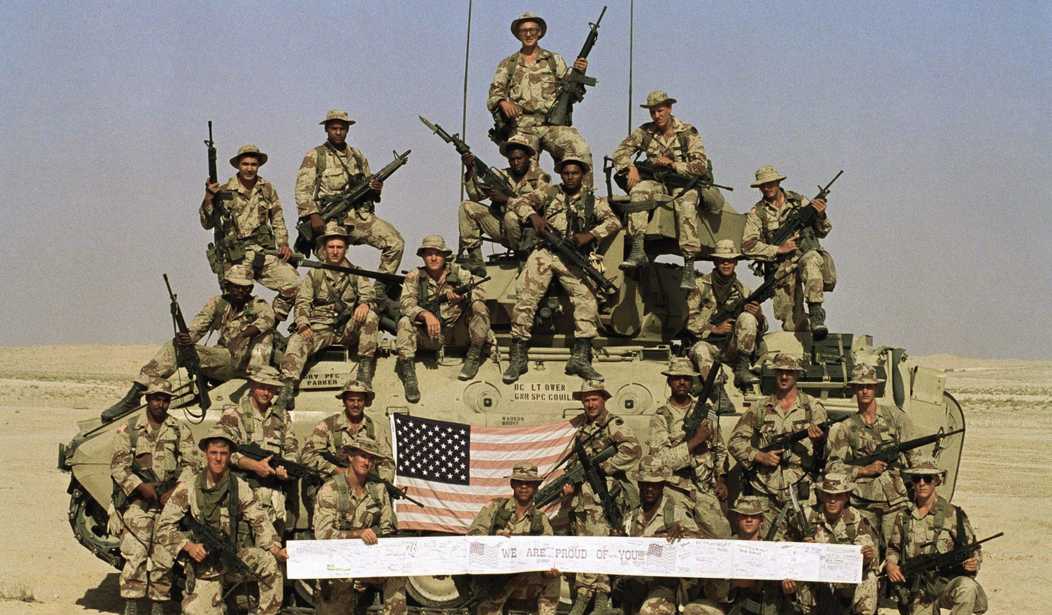A professor at Northeastern University recently published an academic study warning that military veterans “reinforce hegemonic masculinity,” and ultimately contribute to “men’s dominance over women.”
The study, titled “How Military Service Members Reinforce Hegemonic Masculinity in Talk,” was published in the Western Journal of Communication on August 10. It was written by Northeastern Professor Bobbi J. Van Gilder.
Her research consisted of interviewing 14 current and former male servicemembers by phone or Skype. Gilder analyzed their responses to certain questions to see if any of their phrasing betrayed their thoughts on “gender and sexuality norms” in the military.
Prefacing her findings, Gilder concluded:
[H]egemonic masculinity and heteronormativity were reinforced through discursive positioning, whereby military service members positioned the feminine other as a threat to military effectiveness.
John, an Army veteran, was criticized by Van Gilder for claiming men inherently want to protect women. On the phone with Gilder, John stated that he doesn’t want women serving in combat units:
I think that there is no place for women in combat because of the natural instinct of men to protect them and place themselves at risk.
Gilder claimed that John had “constructed women as in need of protecting.” She further alleged that John was “victim-blaming” — women being “victims” of John’s opinion that “men are simply falling victim to their ‘natural instinct’ as protectors.”
“Victim blaming is a common semantic strategy that works to justify or naturalize social inequality,” explained Gilder.
During another interview, Van Gilder criticized a gay veteran for having put on a “masculine ethos” during their conversation. Said Kevin, the gay veteran:
When you actually get thrown into a combat situation where you have to put all your differences aside and do your job, it makes things a little different. … It’s like what separates us veterans from people who have never deployed. In many ways, in my opinion, [the public doesn’t] understand what a true soldier is all about.
Van Gilder concluded that Kevin was attempting to assert his masculine identity by framing only certain people as “true soldiers.”
Van Gilder also suggested that Kevin’s sexuality was to blame for his “sexism” — that gay men may try to compensate for their public image as effeminate by emphasizing their masculinity. She only published short quotes from Kevin’s hour-long interview.
Van Gilder’s study did not provide veterans with any recommendations for how they can stop oppressing women. However, she did express that Army veterans are hurt by masculinity, too:
Hegemonic masculinity and heteronormativity are harmful to those who are subordinated, degraded, and oppressed by existing systems of power … but also to those with privileged status, such as heterosexual men.
Van Gilder concluded:
My hope is that this study serves as a step toward positive social change.
Follow the author of this article on Twitter: @Toni_Airaksinen










Join the conversation as a VIP Member